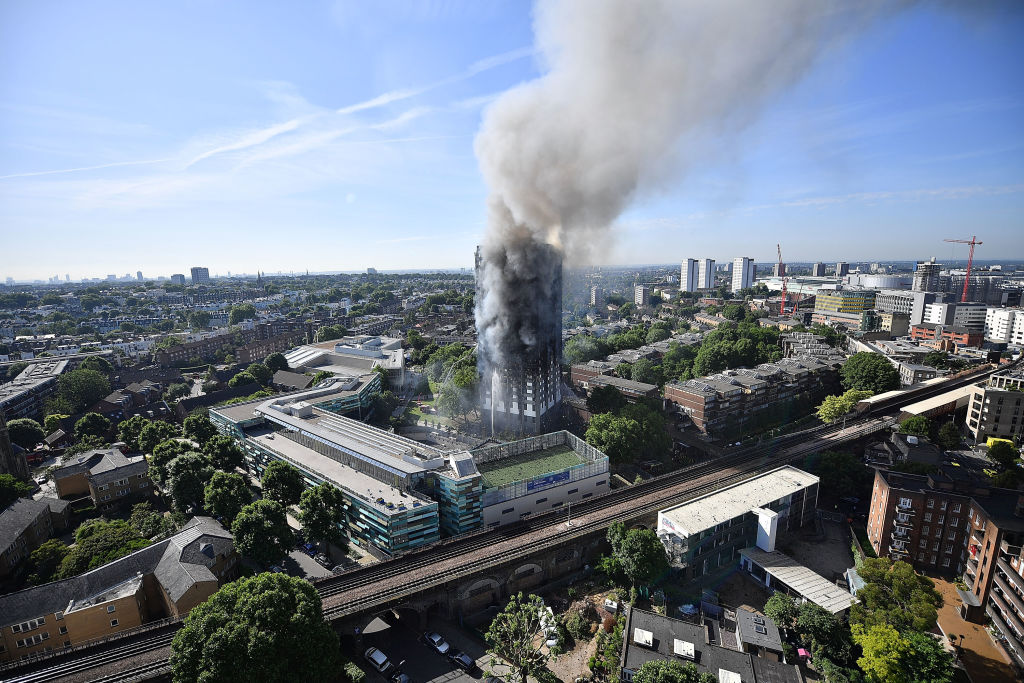Now that Labour councils have been shown to be as much up to their eyeballs in the tower block cladding scandal as Conservatives ones the Left has subtly shifted onto a different target: the ‘neoliberalist’ war on red tape. Writing in the Guardian today, George Monbiot accuses the Government’s Red Tape Initiative – set up to consider which regulations might be reformed once Britain is freed from having to abide by EU directives – of plotting to downgrade building regulations, so as to put the poor at risk while big business increases profits. ‘Red tape,’ he asserts for good measure, is a ‘disparaging term for public protections’.
Let’s leave aside the Left’s own dislike of regulations which it finds inconvenient – that relating to the funding of trade unions, for example. Monbiot’s usual parable about callous neoliberalism trampling on the rights of the poor is in danger of becoming, in the case of Grenfell Tower, the standard version of events. That governments and policy-makers have often spoken of a ‘bonfire’ of red tape of course adds to the imagery. The picture Monbiot presents is akin to that of Captain Smith on the Titanic, steaming recklessly into the ice fields off Newfoundland in order to reach New York faster and claim the prize that will increase his company’s profits – while the poor are left to drown in icy waters for want of enough lifeboats.
It is nonsense in the case of the Titanic – by what mechanism does a shipping company increase its profits by sinking its flagship? – and it makes no more sense in the case of Grenfell Tower. Exactly where regulation failed in this case won’t be clear until the inquiry has heard evidence, but the general assertion that red tape is the enemy of Big Business and the friend of the people fails somewhat on the evidence. As generations of ‘red tape tsars’ have found, Big Business is often the inspiration behind red tape. Lord Haskins, who served as Chairman of Tony Blair’s Better Regulation Taskforce between 1997 and 2001, gave up in frustration at the reluctance of large companies to countenance the reduction of many regulations. He said in 2005: ‘They see regulation as a way of getting a competitive advantage over small businesses’. Why, for example, did the Blair government’s Care Standards Act come up with pettifogging rules over room sizes and door widths which forced the closure of hundreds of old peoples’ homes and the relocation of their reluctant residents to purpose-built, more standardised granny farms? Because much of the legislation was inspired by the big beasts of the care home sector. Why do private landlords of students houses have to fill in absurdly detailed forms showing the location of items of furniture in their properties – often paying the local authority over £1,000 a time for the privilege? Because the large companies which run purpose-built student halls of accommodation lobbied for the legislation.
As well as using regulations to gain a competitive edge, many businesses make money directly from the enforcement of regulations. There is a whole industry based around compliance. I don’t know where companies like Compliance Business Solutions Ltd fit into George Monbiot’s worldview, but they are doing very nicely, thank you, out of selling their services to people or other businesses bewildered by red tape.
Government’s job should be to cut through the rubbish, to dismiss the lobbying for rules and regulations which have been concocted to suit some vested interest and to come up with legislation which balances the needs of business with public interest. A fog of regulations doesn’t help save lives – merely to bury beneath mountains of pointless rules the regulations that we really do need.
No-one should forget that the whole business of cladding tower blocks came about as a result of a regulation itself – many buildings were renovated in a mad rush by councils eager to reach Blair’s target of making 95 per cent of social housing comply with his Decent Homes Standards by 2010. Those standards laid down plenty about insulation requirements but rather less about fire safety. We would be in a better place now had those regulations never been passed.







Comments